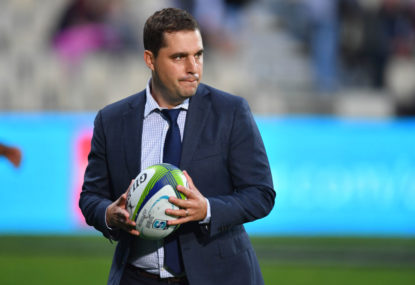If Australian rugby is in disarray, it seems that nobody told Dave Wessels.
With 2017 one of the most tumultuous years in the history of rugby union in Australia, culminating in the exit of the Western Force from Super Rugby, then-Force coach Wessels could have been excused for feeling less than enamoured of the professional rugby environment in Australia and stepping away from the carnage.
But Wessels – a thoroughly likeable family man, who just happens to have a passion for his sport – has managed to find a way to move forward, taking charge of the Melbourne Rebels.
“Fundamentally I love rugby”, he told me after a recent training run. “I’m not really interested in the politics of it all, or people who might feel I’ve crossed over to the establishment side – whatever that might mean. I’ve come to Melbourne because there is a great challenge and opportunity to do something positive for rugby here, and for Australian rugby and for the game as a whole – the game that I love.”
It hasn’t taken Wessels long to settle in Melbourne, not that this implies any disrespect for what he left behind in Perth; “I really enjoyed my time in WA. The most frustrating thing about what happened to us was that we didn’t understand it. There was a lack of clear process and we didn’t really know why.
“So that’s still the thing that hurts and disappoints, but on the plus side, I believe there are too many passionate and great rugby people in WA, and too much energy, for professional rugby not to return in the future. I’m actually very confident that the long-term outlook for rugby in WA is positive, even if it’s not immediately obvious to everyone right now.”
It clearly matters for Wessels to stay connected with the region that provided him with his first Super Rugby head coaching opportunity, while at the same time not letting that get in the way of the future.
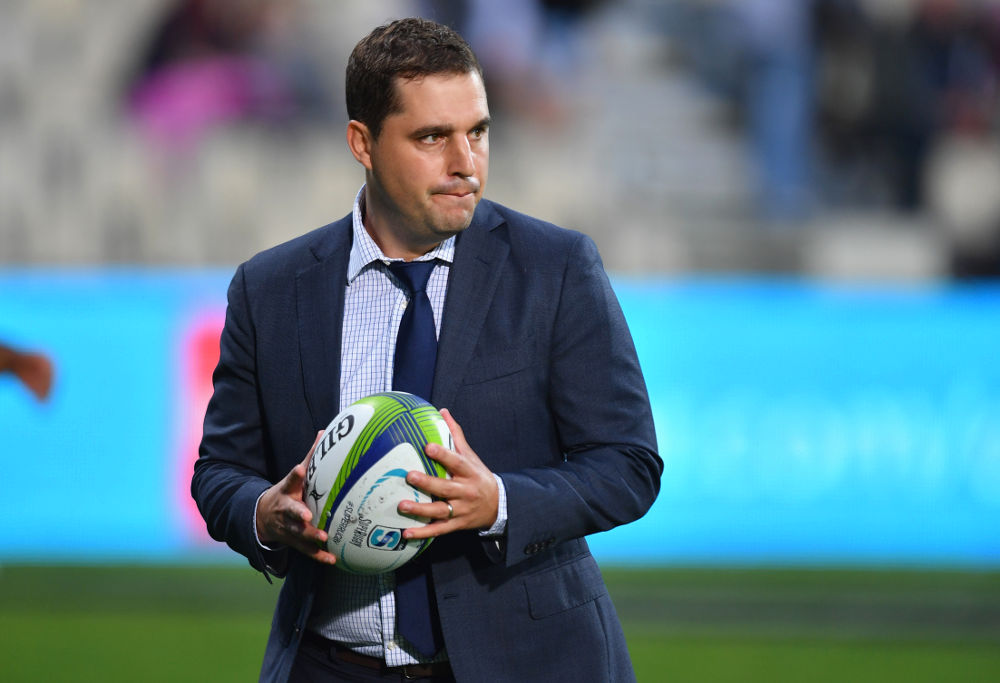
(Photo by Kai Schwoerer/Getty Images)
“We fought much harder – on-field, media, admin, in the courts – than perhaps what a lot of people expected us to, to try to remain in Super Rugby.
“So it’s important that I stay in touch with people there and help try to keep the energy going for rugby in WA, although I’m very understanding and respectful that myself and these players now have a great opportunity to move forward in Melbourne.”
For fans and media keen to paint the Rebels as a replanted Force sprinkled with the best of Melbourne, it is obvious, from observing the squad during and after training, that the group has gelled and is well into the process of forging their own path.
Wessels again: “It’s like we’re a start-up. We’re still working out ‘what is our own identity’ and ‘what do we stand for’, which is typical of any young organisation. There’s been lots of honest talk about how we feel and what it all means for different individuals.
“We’re aware that we haven’t done anything yet, we’ve still got a huge task ahead to prove ourselves against some of the best sides in the world. But it’s already clear that there’s a lot of good people and real energy around this place and it’s gone better than I could have expected.”
In order to illustrate what is possible, Wessels explains how he has shown the team a table that lists Super Rugby winners in column one and their finishing position the year prior to winning in column two. It reveals how a high proportion of winners have come from unsuccessful seasons the year before.
“This shows two things. How the margin between success and failure in Super Rugby is incredibly tight, and that it’s possible to achieve success in a short space of time.”
One of the success factors Wessels has identified is intensity; “Intensity around the way we train, prepare, our thoughts around what we’re all doing collectively and individually. How I manage this is by providing very clear definitions around when we’re working and being totally switched on, and when we can relax outside of that – because nobody can maintain that high-intensity level all the time.”
Certainly, a Rebels training session – early 2018 version – feels nothing like a typical pre-season run. The intensity levels are sky high and watchers-on could be excused for thinking there are starting places up for grabs with every drill.
Indeed, with AAMI Park now oozing with talent, Wessels has quietly gone about assessing all of the members of his squad. “Initially, I took the Rising/Rebels group away for a week, we played against Jake White’s team, then I had the first two weeks of pre-season with these guys. So that’s given me a really good handle on the abilities and personalities of the whole group.”
Wessels is full of praise for how the local players have presented for the pre-season, singling out Sam Jeffries, Rob Leota and Colby Fainga’a as players to catch his eye. He’s also very happy with how the Wallabies have come back and is full of admiration for how the Australian conditioning program has stepped up in 2017.
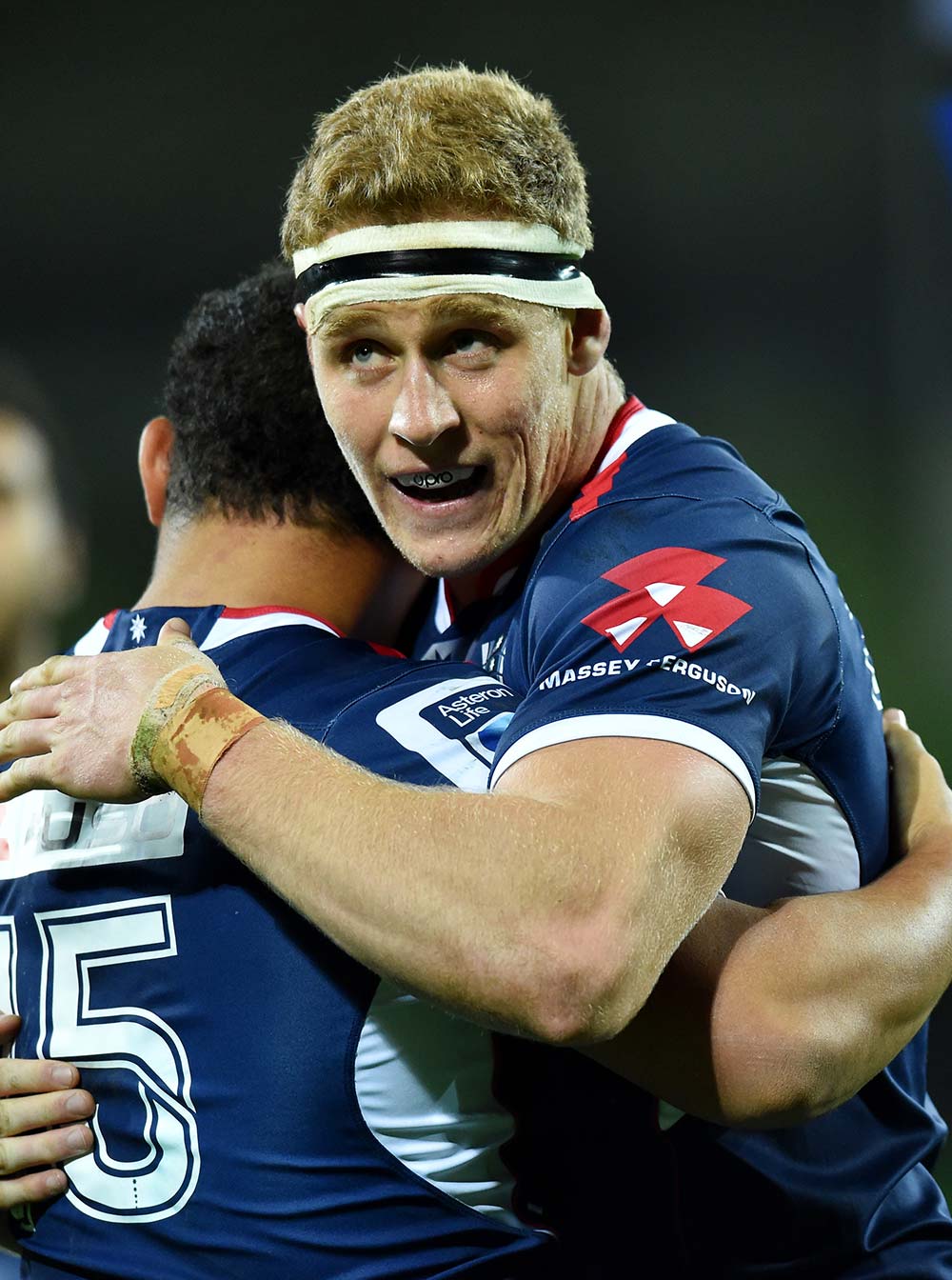
(AAP Image/Tracey Nearmy)
As for any hints as to Round 1 selection, Wessels is clearly playing no favourites. “We’re not going to move from last to first if we’re not going to be brave. That’s the players on the field, in the style we play and myself, in my selections. It’s my task to reward players who are performing, whether they are Wallabies or not.”
There is a thought posed by some fans that the Rebels squad is in fact too loaded with talent, and that this will lead to problems keeping everyone engaged. Wessels doesn’t see it that way.
“Last year the Force used 38 players and the Rebels 39. If we want to win we need to be realistic and genuine about having real depth in the squad. Look at the top teams and the quality of player they have sitting on the bench.”
That depth was tested on Saturday in the Rebels’ first trial match against the Brumbies; a 19-50 loss less important for the result than for providing Wessels with a final opportunity to assess all of his fringe squad players. Expect the line-up for the Rebels’ next trial match against the Waratahs to include their full contingent of internationals.
Whoever takes the field during the season, fans can expect to see a continuation of the attacking brand of rugby shown by his side last year, one which is almost demanded by the competition itself, where it’s a matter of keep up with the pace or suffer the consequences. In that respect, Wessels doesn’t see himself as an innovator, but someone who has learnt from the best.
“I’ve been incredibly lucky. I worked with a special group in South Africa and then went to the Brumbies and worked with Jake (White), Laurie (Fisher) and Steve (Larkham). So being a fly on the wall at those places, absorbing all of the knowledge and different approaches, I’ve been able to develop my own authentic style as a result.
“Essentially, my primary role as a coach is as a facilitator, to create the best environment for everyone to flourish and the team to come together and be successful. I’m not a micro-manager but the non-negotiable is that I expect everyone to come with a high level of intensity.”
As for the prospect of righting the Super Rugby ledger against New Zealand franchises this season?
“The biggest difference between New Zealand and Australian rugby in recent years is athleticism. We’ve seen how they pull away at the end of games, and how they’re more dynamic in contact. With that comes confidence and the willingness to try things – all of which links back to superior athletic ability.”
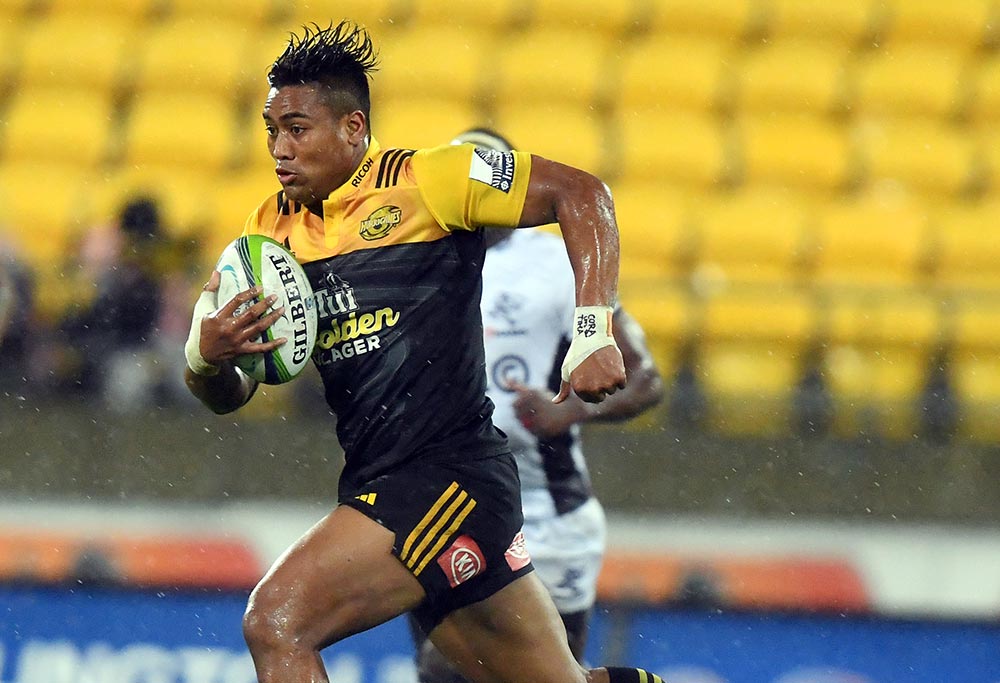
(AAP Image/SNPA, Ross Setford)
Wessels isn’t over-promising but nods to a friendlier schedule in 2018 that will allow his side time to settle into the competition before facing a New Zealand franchise. He also hints at improvement lurking in the local game.
“The Wallabies have done a tremendous amount of work on improving the athleticism of their players, and combined with what Rod Kafer is working on with his coaching program, looking at where we need to be placing our emphasis, I expect we’ll see improved results to start to flow through.”
It is typical for coaches, players and fans to feel optimistic at the beginning of each season. Scoreboards and ladder tables are reset to zero and the media teams at each franchise do a great job of selling fresh hopes and dreams to members and fans.
Gradually those hopes will be overtaken by the harsh reality that is Super Rugby – injuries, the effects of travel and the sheer relentlessness of facing high-quality opposition week after week.
For the Melbourne Rebels, circumstances have come together in a way that, perhaps for the first time in their eight-year existence, allows them to be a genuine contender for finals action. If the rugby smarts, personality and commitment of their coach is anything to go by, they are well placed to take advantage of that opportunity in 2018.
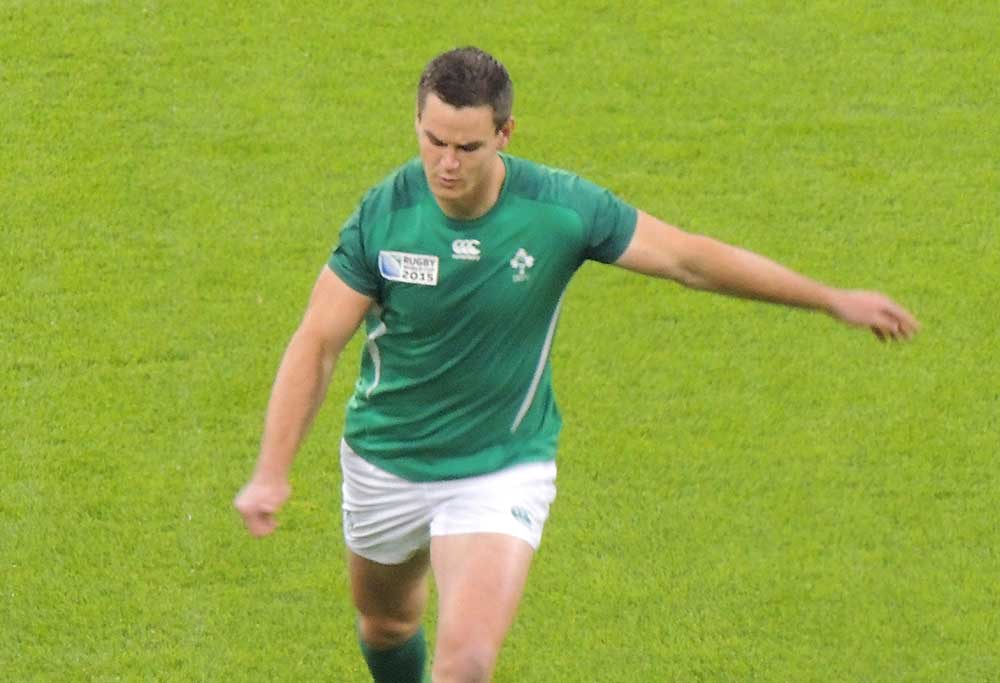
(Warwick Gastinger / CC BY 2.0)
Meanwhile, opening Six Nations action delivered two vastly contrasting matches, Wales comprehensively beating Scotland 34-7 in Cardiff, and Ireland escaping from Paris with a rare win, 15-13, courtesy of a stunning 45-metre drop goal from Johnny Sexton in the final play of the game.
Wales coach Warren Gatland, in his final season in charge, delivered a tactical master-class, anticipating Scotland’s expansive approach and employing an impenetrable sliding defensive screen that overwhelmed the increasingly ragged Scots. Inevitably, defence created opportunities for attack, and a four-try bonus point accrued from clinical finishing.
If Gatland is serious about contending for the All Blacks coaching role after Steve Hansen steps down, this win will not have escaped the powers-that-be in Wellington.
While Sexton rightly took the accolades for his wonderful winning strike, the seeds of this Irish win can be found in their heartbreaking 24-22 loss to the All Blacks in Dublin in 2013. Like the All Blacks that day, Ireland stuttered for much the match, yet when provided one final opportunity, found the composure and self-belief that only good, experienced sides have, to retain possession and steal the game.
Heartbreaking for the French but a wonderful example of how sport gives and takes almost in the one breath.





























































































